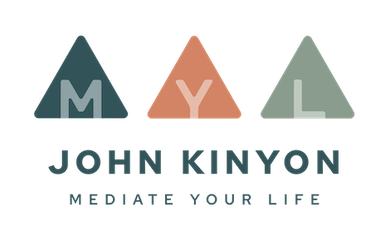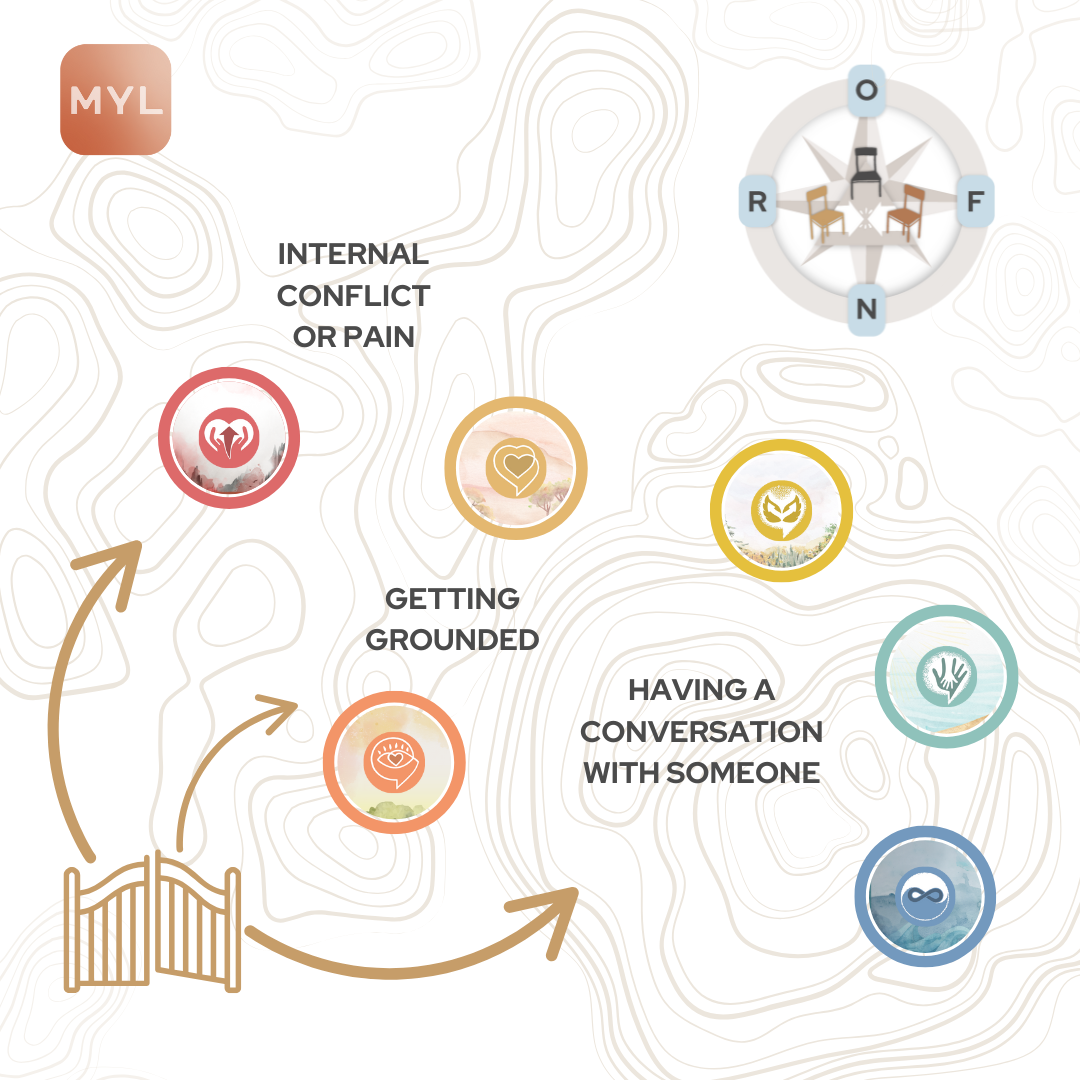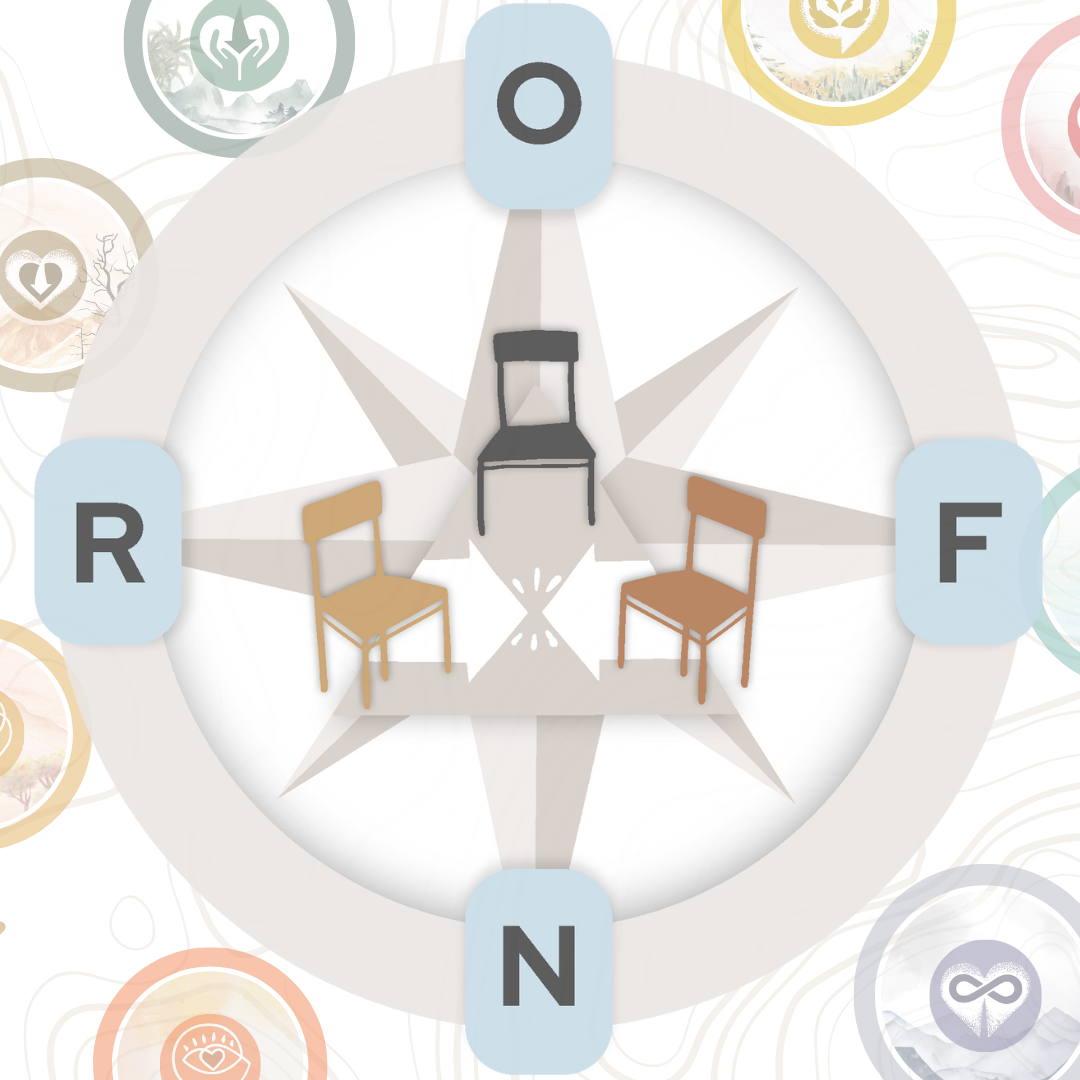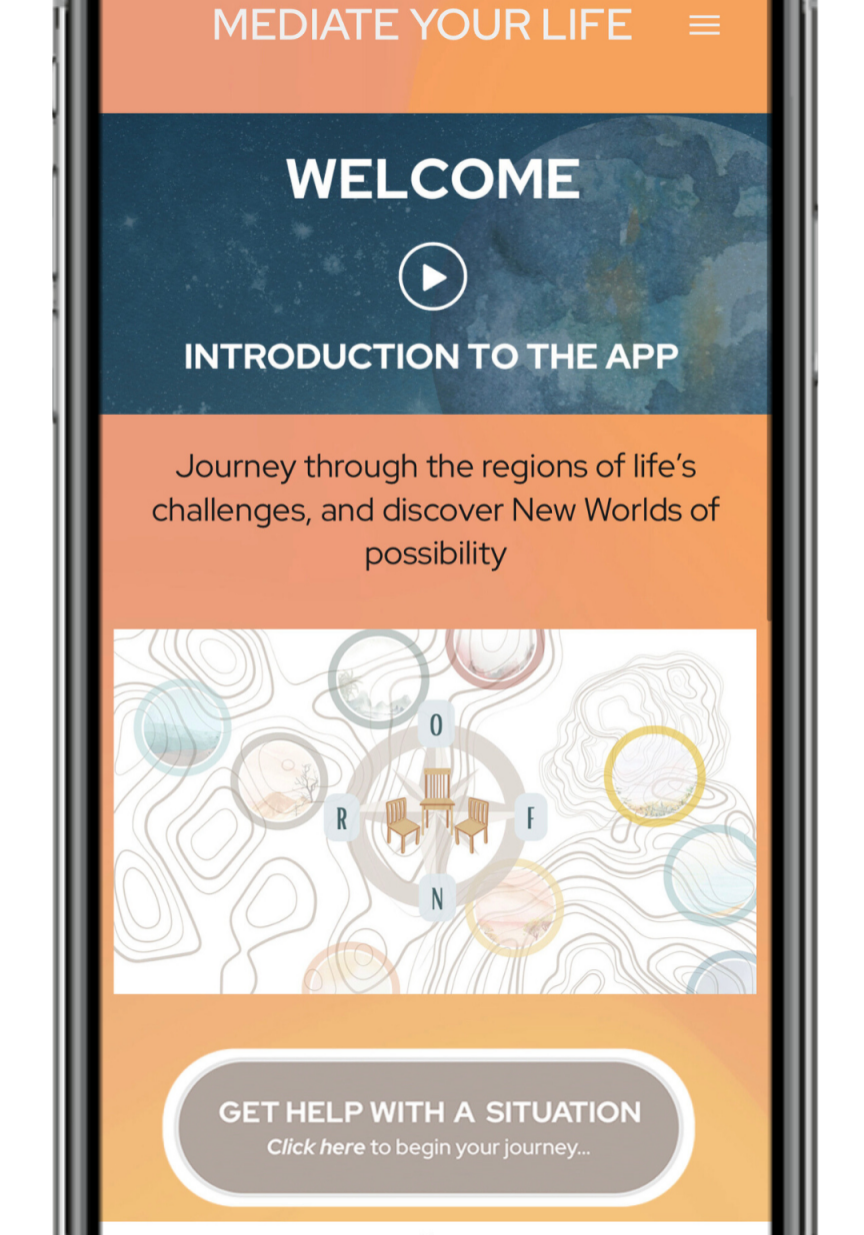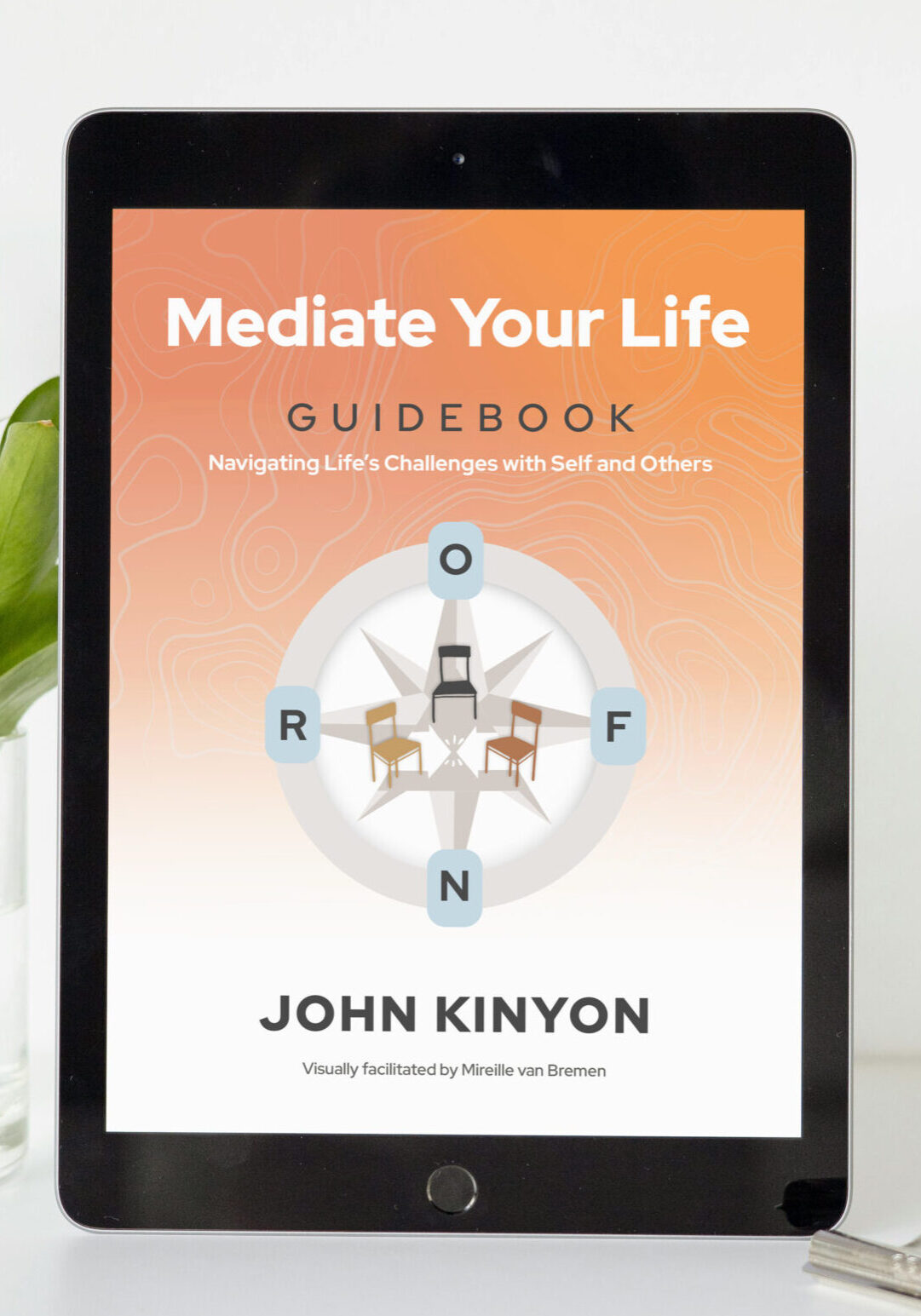- Mediate Your Life -
WHAT DOES IT MEAN?
I am me, and you are you. And, I am you, and you are me, because we are one.
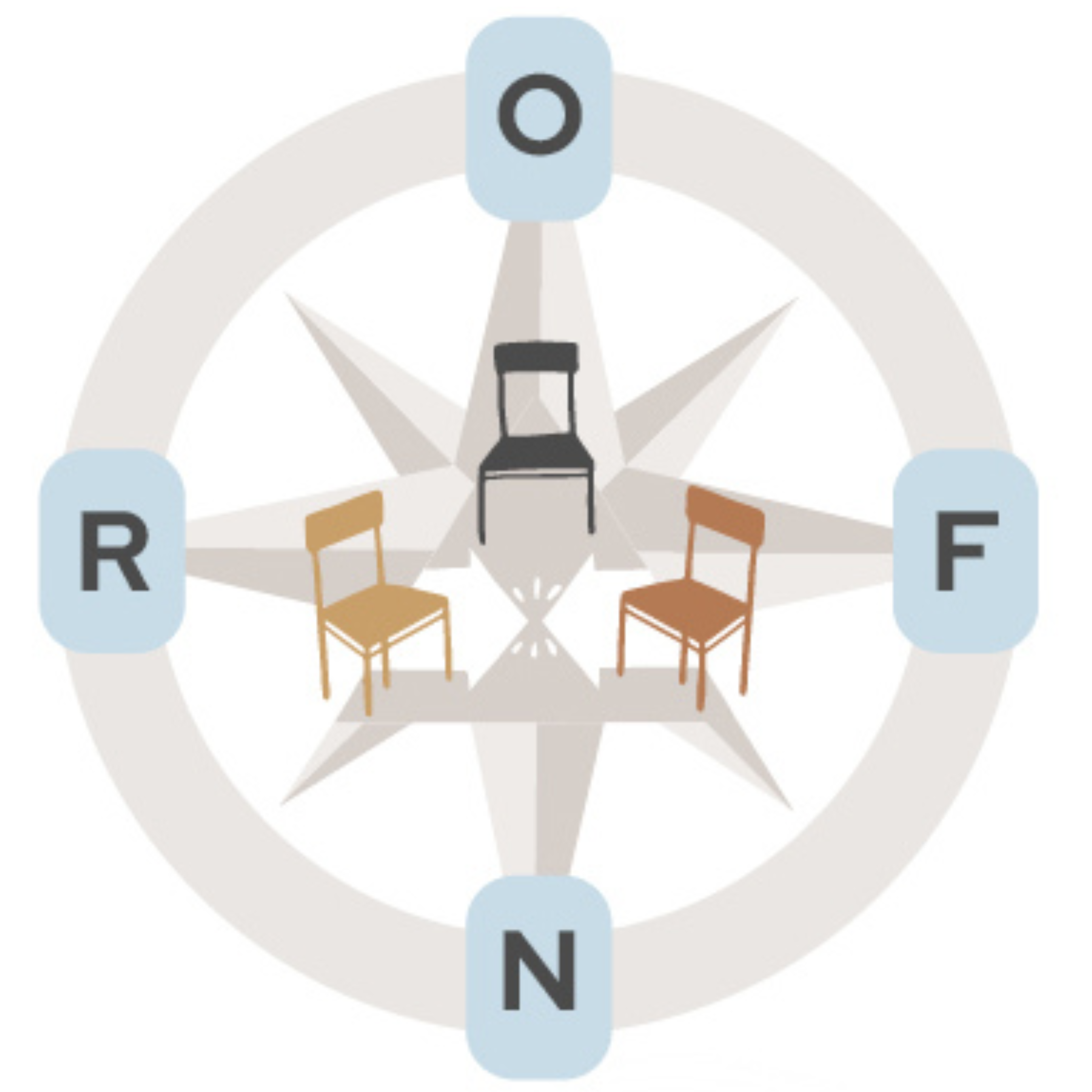
Being grounded and centered in conflict, responding with presence.
Transforming internal reactions and pain.
Bridging differences, healing divides.
Feeling confidence and skill navigating conflicts.
Creating emotional reconciliation, healing, and forgiveness.
Mediate Your Life Map
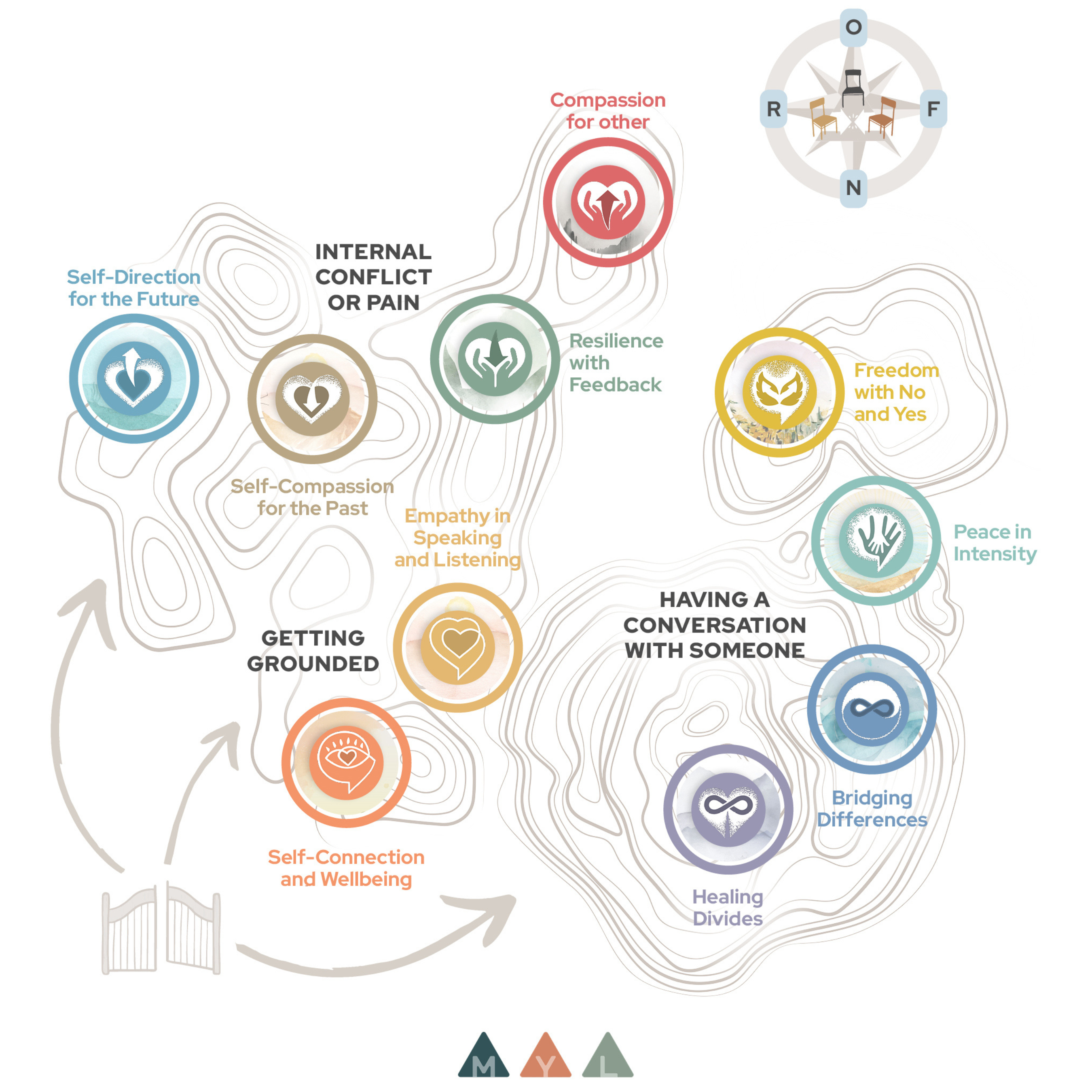
What is the Mediate Your Life Approach?
The Mediate Your Life Map
The MYL approach gives a "compass" and practical step-by-step directions to guide yourself and others to empathic connection, compassion, and new creative possibilities. The approach gives the ability to navigate any territory of human conflict — internal or external — to peace and wellbeing.
When you are triggered into the brain’s Fight-Flight-Freeze stress response system, the skills, structure, and processes bring you back to connection and collaboration with yourself and others.
At the core of the approach is a "three chair" model of conflict transformation that integrates dual and nondual awareness, language, and relationality in consciousness.
The Mediate Your Life body of work was created and developed by John Kinyon and Ike Lasater, and is based in the international work of Nonviolent Communication (NVC). The MYL approach integrates and is complementary with the work of Richard Schwartz's Internal Family Systems (IFS), Thomas Hubl's individual, ancestral, and collective trauma healing, and Dan Siegel's ideas of "Intra-connection."
Territories in the Mediate Your Life Map
- Self-Connection & Wellbeing is a mindfulness practice to support challenging moments.
- Empathy in Speaking and Listening is for speaking and listening using empathic conversation.
- Compassion for Other is for times of anger, frustration, or when experiencing negative judgments about someone.
- Resilience with Feedback is for recovery, strengthening resilience, or debriefing with empathy and compassion after something that you fear was a "mistake" and are now feeling anxiety, stress, guilt, or shame due to judgments from others, loss of connection, or other negative consequences.
- Self-Compassion for the Past is for when feeling anger towards yourself and have thoughts of self-blame, condemnation, unworthiness, or disruption to your experience of play and joy about the past.
- Self-Direction for the Future is for when you are feeling anxiety, stressed, stuck, indecisive, depressed, or a general disruption to discovery and enthusiasm. For when your thoughts have demands like should, have to, must. And when you fear possible negative consequences about making a decision, moving in a particular direction, or towards a particular goal in the future.
- Peace in Intensity is for practicing to respond with self-connection and compassion in intensity of difficulty and challenge
- Freedom with No and Yes is used to respond with empathy and compassion when receiving or saying a no.
- Bridging Differences is for talking to someone where you feel fear because of a disagreement, lack of acceptance, or potential reactions of anger.
- Healing Hurt & Divides is used when talking to someone where there are feelings of emotional hurt, pain, judgments of blame, or feelings of anger.
